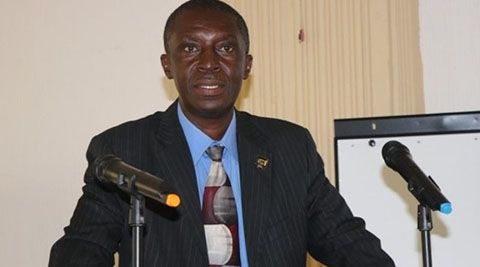The Perspective
Atlanta, Georgia
Posted June 19, 2024
 |
Tiawan S. Gongloe, LPP Standard Bearer |
When African politicians get to power, they put aside their campaign promises about fighting corruption and switch to making excuses. And when they are reminded by civil society and opposition parties, they give excuses. They often say that the reality is different in government than outside government. Yet, as they make these excuses, they and their family and friends live better lives than most people. While those in power and their children eat three times a day, most citizens find it difficult to have one meal daily. While those in power and their families have access to the best medical treatments in their countries and most often out of their countries, a majority of their citizens die from malaria, running stomach, headaches, and other curable and preventable illnesses. While the children of those in power go to the best schools in and out of their countries, the poor majority are out of school, and the few in school attend sub-standard schools. There is a vast difference between the lives of people in power and those who governed in most African countries is like day and night, yet they are citizens of the same country.
The negative effect of corruption in West Africa on the people of West Africa is more significant than in other African regions. For example, air travel in West Africa is more complex than in most regions of Africa. At one time, West Africa had Air Afrique, Nigeria Air Ways, and Ghana Airways providing air travel services within West Africa, Across Africa, and the World. All of these West African airlines collapsed due to corruption. Today, the people of West Africa rely largely on Air Ethiopia, Kenyan Airways from East Africa, and Air Morac from North Africa. With this kind of situation, tourism cannot develop in West Africa. Serious investors are reluctant to come to West Africa because of the unpredictability of air travel in West Africa. Corruption impedes sustained peace, economic development, political stability, and a better life, especially in West Africa.
Can there be unity, reconciliation, and sustainable peace in any country in which a tiny minority of the people are visibly seen every day to be so rich by a majority of the people who are so poor that life has become so difficult to live? My answer is a big No. This situation cannot continue. The famous Liberian singer Takun J puts it squarely right. His song, “They Lie to Us,” accurately explains the behavior of most politicians in Africa. Under this situation, we, the people of Africa, must start a new liberation war. Our war against colonization is over. The struggle for democracy has progressed, at least to the point we are holding regular elections. However, most election results in Africa have, thus far, been in favor of corrupt politicians. Our new war, therefore, must be a war of the people against corruption, a people’s liberation war against corruption. It must be a people’s war without any warlord. During this war, those who are caught in the war must be treated as war prisoners, albeit in keeping with the law.
In preparation for the war, there must be massive awareness about the enemy's nature, identity, and power. This must be the first obligation of the press and civil society because it will strengthen the people to identify corrupt politicians, reject them during elections, and name and shame them if they remain the same. The second thing that must be done is to reform the laws in all African countries by, amongst other things, removing the statute of limitations on corruption offenses.
We have begun the struggle to mobilize our fighters for this liberation. That is why we carry the broom. The broom stands for cleanliness. Therefore, we carry the broom as a symbol of our determination to fight our most potent enemy of progress in Africa, corruption. There must be a national and continental broom movement for the liberation of Africa from Corruption. I call upon all the people of Africa, especially the young people, to join this liberation war against corruption.
The government is a place to serve, not to steal!!!
A better Liberia is possible!!!
A better Mano River Union Region is possible!!!
A better West Africa is possible!!!
A better Africa is possible!!! and
A better World is possible!!!
The struggle against corruption continues!!!
I thank you
==============================================================================================================================================
© 2023 by The Perspective
E-mail: editor@theperspective.org
To Submit article for publication, go to the following URL: http://www.theperspective.org/submittingarticles.html